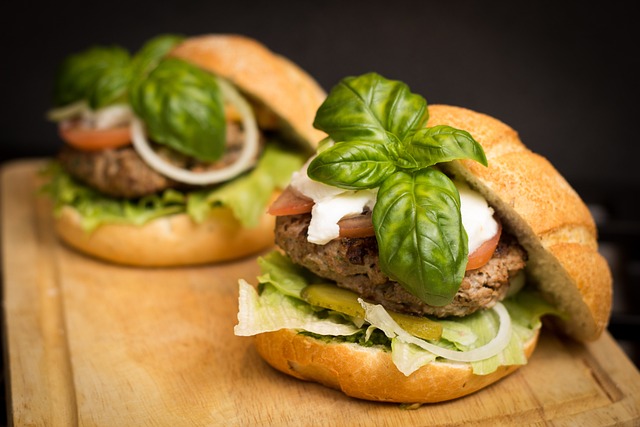Foods That Trigger Anxiety: What You Need to Know

Foods That Trigger Anxiety: What You Need to Know
Anxiety is a common mental health condition that affects millions of people worldwide. While various factors contribute to anxiety, including genetics, environment, and lifestyle, diet plays a significant role that is often overlooked. Certain foods and drinks can worsen anxiety symptoms, leading to increased feelings of nervousness, tension, and worry. Understanding which foods might be triggering your anxiety can be an essential step toward managing your mental health.
7 Foods That Trigger Anxiety
Caffeine
Caffeine is a stimulant in coffee, tea, chocolate, and many energy drinks. It stimulates the central nervous system, leading to increased alertness and energy. However, for individuals prone to anxiety, caffeine can be a double-edged sword.
How does caffeine impact anxiety?
Caffeine can increase heart rate and induce nervousness, mimicking or worsening anxiety symptoms. It can also interfere with sleep patterns, leading to sleep deprivation, which is closely linked to increased anxiety levels.
If you suffer from anxiety, it might be helpful to reduce your caffeine intake or switch to decaffeinated options.
Sugar and High-Glycemic Foods
Consuming large amounts of sugar and high-glycemic foods, such as white bread, pastries, and sugary beverages, can cause rapid spikes and crashes in blood sugar levels. This fluctuation can impact your mood and anxiety levels.
Rapid changes in blood sugar levels can cause symptoms similar to anxiety, such as irritability, jitteriness, and mood swings. High sugar intake has been linked to the increased release of cortisol, a stress hormone that can worsen anxiety.
Choose complex carbohydrates, such as whole grains, fruits, and vegetables, which provide a steady release of energy and help maintain stable blood sugar levels.
Alcohol
While alcohol might seem like a quick way to relax, it can have the opposite effect on anxiety in the long term. Alcohol is a depressant that affects the central nervous system, and its impact on anxiety is multifaceted.
How does alcohol impact anxiety?
Alcohol can initially reduce anxiety, but as it leaves the system, it can cause rebound anxiety and disrupt sleep. It can alter the levels of serotonin and other neurotransmitters in the brain, potentially worsening anxiety symptoms.
If you experience anxiety, consider moderating your alcohol consumption or avoid it completely.
Processed Foods
Processed foods, which often contain high levels of preservatives, artificial colours, and additives, can negatively impact mental health, including anxiety.
Certain additives and preservatives, such as monosodium glutamate (MSG) and artificial sweeteners, have been linked to increased anxiety. They are often low in essential nutrients like magnesium and B vitamins which are important to mental health.
Aim to eat a diet rich in whole, unprocessed foods, such as fresh fruits, vegetables, lean proteins, and whole grains.
Dairy Products
Dairy products, especially those high in fat and lactose can trigger anxiety in some individuals. This is particularly true for those who are lactose intolerant or have a sensitivity to dairy.
Lactose intolerance can cause gastrointestinal discomfort, which can lead to increased stress and anxiety. Some individuals may have sensitivities to casein and whey proteins found in dairy, which can cause inflammation and affect mental health.
If you suspect dairy might be affecting your anxiety, try eliminating it from your diet and observe any changes in your symptoms.
Fried and Fatty Foods
Fried and fatty foods, such as fast food, can contribute to inflammation in the body, which has been linked to mental health issues, including anxiety.
Diets high in unhealthy fats can lead to increased inflammation, which is associated with higher anxiety levels. Fried foods can cause digestive issues, leading to discomfort and stress.
To avoid this, choose healthier cooking methods, such as baking, grilling, or steaming, and use healthy fats like avocados and olive oil.
Artificial Sweeteners
Artificial sweeteners, such as aspartame and sucralose are commonly used as sugar substitutes but can have adverse effects on mental health.
How artificial sweeteners impact anxiety
Artificial sweeteners can affect the production of neurotransmitters, such as serotonin, which play a role in mood regulation. Some studies suggest that artificial sweeteners can increase the body's stress response, potentially worsening anxiety.
Consider natural sweeteners like honey or maple syrup in moderation, and be mindful of your intake of artificially sweetened products.
Conclusion
Diet plays a crucial role in managing anxiety, and being mindful of what you eat can make a significant difference in your mental health. By identifying and reducing the intake of foods and drinks that trigger anxiety, you can help alleviate some of the symptoms and improve your overall well-being. As always, it's essential to consult with a healthcare professional before making significant changes to your diet, especially if you have existing health conditions.
